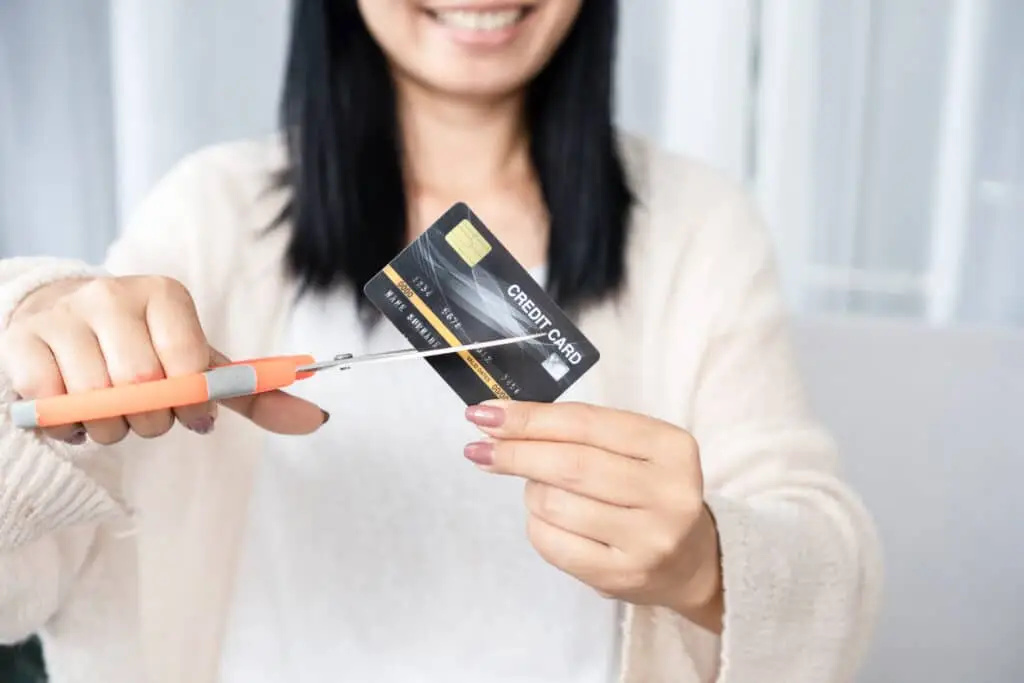Are you feeling weighed down by consumer debt? Does your consumer debt make you feel trapped and behind in your financial goals? If so, you’re not alone.
Many people find themselves accumulating debt here and there as years pass by. While having some debt can benefit your finances—such as allowing you to build a credit score—too much debt can negatively affect your retirement accounts’ growth over time.
So, what is consumer debt, and how can you pay off debt fast? Let’s dive in and explore the answers to these questions.
What is Consumer Debt?
Consumer debt is any debt unrelated to mortgages, business loans, or other types of capital investments. This type of debt can either have fixed or variable rates for interest. Also, consumer debt, often considered suboptimal due to its usually high-interest rates, can lead to financial stress if not used appropriately.
Examples of Consumer Debt are:
- Credit card debt
- Student loan debt
- Medical bills
- Car loans
- Personal loans
- Payday loans
Why Debt is Sometimes Good
In certain situations, having some debt can be a good thing. For instance, credit cards are typically a source of consumer debt, but they’re also an essential tool for managing and building your credit history if used responsibly. If you pay off the balance in full each month, credit cards offer several perks, such as cashback and rewards points, that can help offset the cost of purchases.
If your credit is good enough for more in-demand credit cards, you could earn points for flights, hotels, and rental cars. If traveling is a big part of your life, this can be a massive bonus if you use your credit card often and pay off your balance.
Student loan debt can also be beneficial in some cases, as it allows you to finance expensive college tuition without saving up a considerable lump sum of money upfront. Taking out student loans can help you pay for tuition and other educational expenses while giving you more time to concentrate on your studies rather than worrying about how you’ll pay for them.
Depending on your reasoning for accruing debt, consumer debt can build your credit score, help you get by during difficult times, or even help you get career opportunities you wouldn’t have otherwise been exposed to. Using this type of debt with a solid repayment plan can be life-changing.
Now that we can see the value of debt, let’s look at what happens when we have too much debt.
Can I Have Too Much Debt?
Yes, it is possible to have too much debt. With high-interest rates and fees associated with consumer debt, having too much of it can burden your monthly budget and affect your retirement goals.
Having too much consumer debt can limit the money you have left over for monthly savings, which means that you cannot invest as much as you need to achieve your long-term goals. These goals may include your emergency fund, retirement accounts, education funds for your children, and even rainy day funds.
Also, having a significant amount of consumer debt can affect the amount you can borrow for mortgages or other large purchases and investments such as real estate. Your debt-to-income ratio is often assessed when applying for loans and can sometimes lead to a denial from your bank. If your debt is too much compared to your income, securing financing is difficult, even if needed.
In some cases, if your credit card balances are too high, it can lead to your current cards being closed because you are deemed “too risky” by your financial institution. Closing credit cards is a massive hit to your credit score because it weighs your available credit to debt owed. If a card is closed, you no longer have that credit available, thus making your available credit-to-debt ratio worse.
In addition to debt affecting other areas of your financial health, too much debt can also affect your physical health as well.
Ways poor financial situations can affect your physical health:
- Stress and anxiety
- Sleep disturbances
- Increased heart rate and blood pressure
- Headaches and digestive problems
- Fatigue or exhaustion
If you have a lot of debt hanging over your head, you might recognize some of these stress points in your life.
How Long-Term Debt Affects Your Retirement
In addition to the short-term effects of too much consumer debt, it can also significantly impact your retirement plans.
The more money you have tied up in high-interest debt, the less money is left over to invest or save for retirement; this can make achieving your long-term goals difficult and lead to financial hardship later.
As the cost of living and goods we need to live even our most frugal lives keep rising, it is vital to max out retirement accounts and diversify retirement portfolios. If a large chunk of your income is used to pay off current debt through minimum payments or offsetting interest, it’s hard to put money in retirement accounts for later.
If debt accumulation is not reduced as soon as possible, it may profoundly affect your quality of life later on because less money is at your disposal.
How to Pay Off Debt Fast?
Learning what is consumer debt is the first step to tackling it. Understanding the ways you accumulate this debt, and how to reduce debt quickly, can positively change your financial health now and when you are ready to retire.
First things first, get a copy of your credit report. A credit report can help you understand the full scope of your current debt and see if there are any mistakes on your credit report that you need to work to remove.
For example, after you pay a bill, the company you owe may not report your bill as paid. This could be a simple mistake, but it can cause significant issues if your credit report says your account is past due. By reporting this issue and providing proof that your bill was paid on time, you can avoid credit issues and preserve your creditworthiness over time.
The next step is to learn how to pay off your current debt. Several strategies exist for how to pay off debt, so choose the one that best suits you.
The most popular strategies for how to pay off debt fast include:
- Snowball Method – This involves making regular payments on all your debts while focusing extra on paying off one at a time; this helps create momentum with each debt being paid off and can help you stay motivated.
- Avalanche Method – This method is similar to the snowball method, except it focuses on paying off debts with the highest interest rates first, saving you money in the long run.
- Consolidation – If all your debts have higher interest rates but relatively low balances, consolidating them into one loan with a lower interest rate can help you save money in the long run.
- Cut Spending – Cutting back on nonessential spending and using the extra funds to pay off your debts is an effective way to reduce debt quickly.
Examples of how to cut spending are:
- Eat at home instead of dining out
- Take public transportation or ride your bike to work
- Cancel unused memberships and subscriptions
- Put a hold on entertainment spending
- Reduce electricity and water consumption
- Shop for groceries with a list and stick to it
- Negotiate lower rates on credit cards, car insurance, and other bills
- Find free ways to entertain yourself
By implementing some of these strategies, you can work towards reducing your debt and have more funds available to put toward retirement.
- Boost Income – Earning more money through a side hustle or freelance gigs can help you free up cash to pay off debts faster. When you already spend so much time at your day job, thinking of ways to make more money during your downtime can feel daunting.
“The fastest way to making more money is to do what you already know.”
Learning new skills is often necessary for leveling up your career or increasing your salary. However, if you have skills you can leverage, that is the best place to start.
Even if you need to brush up on your skills in a particular area, it will still be faster than starting something new. So, take inventory of your skills, hobbies, and anything you have done in the past, and see how you can use those skills to create a service or product others can benefit from.
Remember: You simply need to know more than the person seeking your advice and services to be considered knowledgeable. Don’t try to be an “expert” before creating your side hustle. Use what you know now and learn as you go.
Conclusion
Having consumer debt can be stressful and costly if not managed correctly, but with consistent effort and planning, you can get out of debt quickly and start saving for retirement.
Additionally, by understanding the risks associated with too much debt and making responsible financial decisions, you can ensure that your long-term dreams stay within reach.
Knowing how to pay off debt is key once you know how much you owe. With the strategies listed above in mind, research each one thoroughly before committing to use one to pay off debt.
With a solid budget and debt repayment plan in place, you will be on your way to relieving debt stress and investing more in your retirement portfolio.
Talking to a financial advisor can help you set a strategy to help you achieve your retirement goals. If you still need to get a retirement plan, give us a call or schedule an appointment to start working toward your long-term financial goals today.






